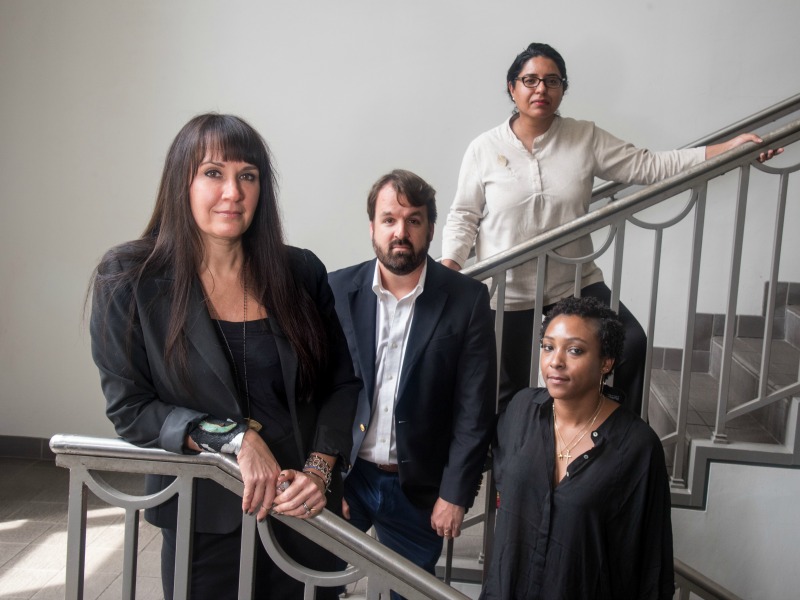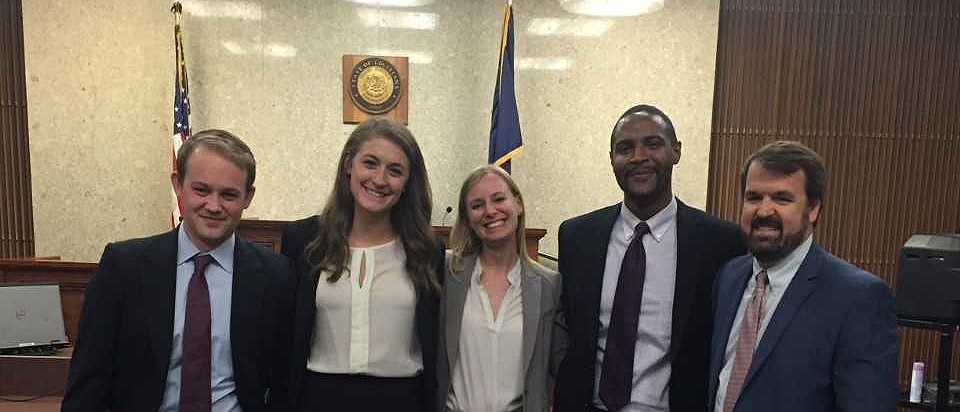Practical Legal Skills Through a Human Rights Lens
The Domestic Violence Clinic is a trial practice clinic that addresses gender-based violence across multiple legal settings. Students in the Domestic Violence Clinic train with a team of expert faculty as they represent survivors of domestic violence, sexual assault, and stalking in trial and appellate courts. Through the Safe Homes Civil Law Project, the Domestic Violence Appeals Project, and the Women’s Prison Project for incarcerated survivors, DV Clinic students:
litigate contested trials in civil district court
write and argue appeals in Louisiana’s appellate courts
represent survivors of intimate partner violence, trafficking, and abuse charged with or convicted of crimes related to the abuse they experienced through the Women's Prison Project, and
explore implications of law and policy on survivors of intimate partner violence, sexual assault, stalking, and trafficking

Who We Are: Lawyers Making a Difference
The Clinic approaches intimate partner violence as a fundamental human rights issue with far-reaching effects on families and communities. Our program has a dual mission: 1) to teach a new generation of law students the skills necessary to become excellent lawyers, creative legal problem solvers, and trauma-informed practitioners; 2) to enhance survivor's safety and well-being by providing holistic, expert legal services that address a range of legal needs.
What Our Students Do: Students Learn to Lead
Students in the Domestic Violence Clinic are in and out of the courtroom throughout the year, representing survivors through a combination of emergency hearings, contested trials, pre-trial motions, and oral arguments. Under the intensive supervision of three full-time faculty with national and international expertise, students serve as “first chair” in their cases, handling all aspects of clients’ legal proceedings. To prepare for their trials, student attorneys conduct trauma informed interviewing, draft pleadings and discovery requests, and conduct and defend depositions.
In this fast-paced legal setting, students learn the skills necessary to become excellent lawyers, no matter what field they enter after graduation.
“Knowing that after law school I would be a corporate attorney, I assumed that my experience in the Domestic Violence Clinic would not directly apply to my practice. I was wrong. Clinic taught me how to be precise with my language, whether in a pleading or in a cross examination question, and that precision is absolutely necessary in contract drafting and negotiations...I was also deeply moved by my clients and saw how good lawyering can change someone’s life in such a meaningful way. I now focus my pro bono work on helping survivors of domestic violence and plan to keep that as a part of my practice for life. Clinic was the best thing I did in law school, for both myself as an attorney and myself as a human being.” Chelsea Lawson (L’ 16)
In addition to learning these essential lawyering skills, Clinic students must also unpack the complex problems individual survivors of abuse face. Students provide “holistic” representation to the Clinic’s clients, which means that they might assist a single client with issues as varied as protective orders, child custody, support, divorce, criminal justice advocacy, consumer law issues, public benefits, immigration, or housing.
This approach to client representation means that the Clinic’s students explore intersections between domestic violence and other social problems, such as unaffordable housing, mass incarceration, community violence, childhood trauma, and gender inequity.
Why Our Program is Unique
Some of our Clinic’s distinguishing features include a low student-to-faculty ratio that allows for one-on-one teaching, a year-long curriculum that allows students to see their clients’ cases from beginning to end, and the opportunity to work in multiple legal arenas, including both civil and criminal practice, and trial and appellate courts.
"Domestic violence requires a response well beyond either interventions for individual victims or the arrest of individual perpetrators. It requires full community engagement and a recognition of the complex and diverse experiences of women who experience abuse." Senior Professor of the Practice, Becki T. Kondkar

The Domestic Violence Clinic focuses on civil litigation skills, and also offers excellent training for future prosecutors. Here, Clinic students celebrate after winning a day-long custody trial that included both domestic violence and child abuse. To prove their case, students introduced criminal convictions, photographs of injuries, videotaped forensic interviews, and police testimony.
